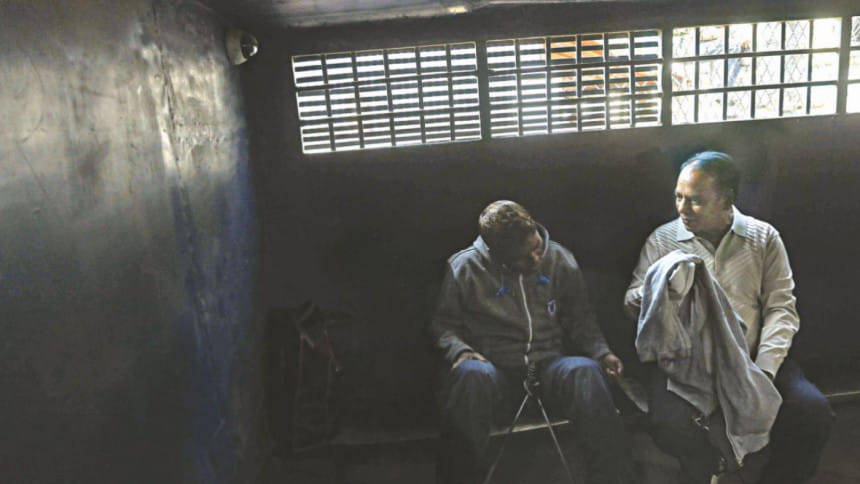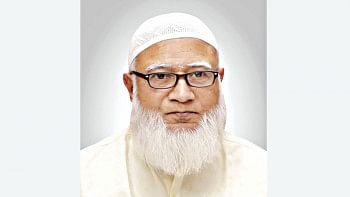RAB's methods need reevaluation

The issue of reassessing RAB's operation was dwelt on in these very columns when the gruesome murders came to light in April 2014. The verdict in the seven-murder case compels one to do so again. And one must respectfully take issue with the home minister when he says, as reported, that RAB will run the way it has been operating and that there is no need for changes within it.
It was by an act of Providence, and rank bad luck of the killers, that the dead bodies were discovered by some locals, found floating in the river. It was perhaps nature's way of expressing its resentment at the most dastardly act of cruelty, and caused the bodies to surface despite all the precautions taken by the killers to ensure that they did not. And had they not been discovered, the seven would have been added to the long list of 'missing' and these RAB officers would have continued with their ways, acting as hired killers in exchange for money.
The government is calling it a victory for the rule of law, and nobody can contest that. And we hope that the government would, by the same token, and with the same promptness that it claimed credit for the 'victory of the rule of law', acknowledge its inability to solve many sensitive as well as high profile murder cases, where investigations are still pending and where the list of 'missing' and encounter deaths is growing longer and longer without any satisfactory answer from the law enforcing agencies.
That said, it was not as if there was no subtle effort to foot-drag on the case needing the orders of the High Court for the main accused to be taken into custody. It is remarkable that the three sacked military officers were roaming free with the allegations on them for the murders, for almost a year after the commission of the crime, and this led to all sorts of speculation. And the fact that some of the culprits spent most of the trial period in sick bay in public hospitals, there were grounds to fear that attempts might be made to tamper with the case. Happily, the case was spared the tortuous and lengthy trial and belying all apprehensions that there might be soft-pedalling of the legal process, the verdict came very quickly. It is the role of the High Court and the effort of the trial judge that had been primarily responsible for the trial to be completed within the time that it was. The conduct of the trial, and its quick conclusion have certainly enhanced people's trust in the legal procedure.
However, the issue compels a relook at the operations and staffing policy of RAB, and the oversight mechanism of the force, since the terms of reference of RAB, to my understanding, having undergone a change from what the initial intention behind forming the force was. It has moved away from the specialised or 'elite' tasks and has got involved in day to day law and order problem like the police, and has in effect supplanted the police instead of supplementing it. Was that the initial intention? The expanded TOR have allowed the RAB officers, at the lower levels particularly, to exceed their remit, ill-defined as they are, and engage in activities with the knowledge of the higher authorities. And one wonders how many of the 'missing' are the victims of errant RAB officers, who may have used their clout in return for money. The Narayanganj murders are a case in point. Reportedly, there are allegations of many disappearances against the former CO of RAB-11, and according to one newspaper, his headquarters was a veritable slaughterhouse.
It is surprising that given the intricacy of the Narayanganj killing operation, which initially was not expected to be so because there was supposed to be only one target, and the rest were unfortunate victims of circumstances, the perpetrators managed to keep the higher authorities in the dark. And this had exposed the severe systematic flaw of the force. And it also shows how greed can transform persons belonging to a well-trained force into vicious individuals. But perhaps a sense of impunity had a lot to do with the actions of the officers and men of this unit. And this was the reason why the High Court was pleased to issue a rule upon the government on March 7, 2015 to explain why it should not be directed to amend the existing law regulating professional activities of the law enforcing agencies including RAB. We do not know if such laws have been changed with regard to the professional activities of RAB.
That RAB has drawn flak as an organisation is not due entirely to its own acts of commission or omission. As we have said before, patronisation of crime, politicisation of the law enforcing agencies, using it against political opponents, and the attempt to combat crime by circumventing the legal and judicial process by successive governments are the real problems that have to be addressed. RAB is but the manifestation of the larger problem that the nation is beset with.
Therefore, apart from strengthening the internal oversight mechanism and defining clearly its terms of reference through laws it must also be freed of political interference. Otherwise, Narayanganj will be repeated and RAB's achievements, of which there are many, will continue to be overshadowed by such unwarranted events.
The writer is Associate Editor, The Daily Star.

 For all latest news, follow The Daily Star's Google News channel.
For all latest news, follow The Daily Star's Google News channel. 



Comments